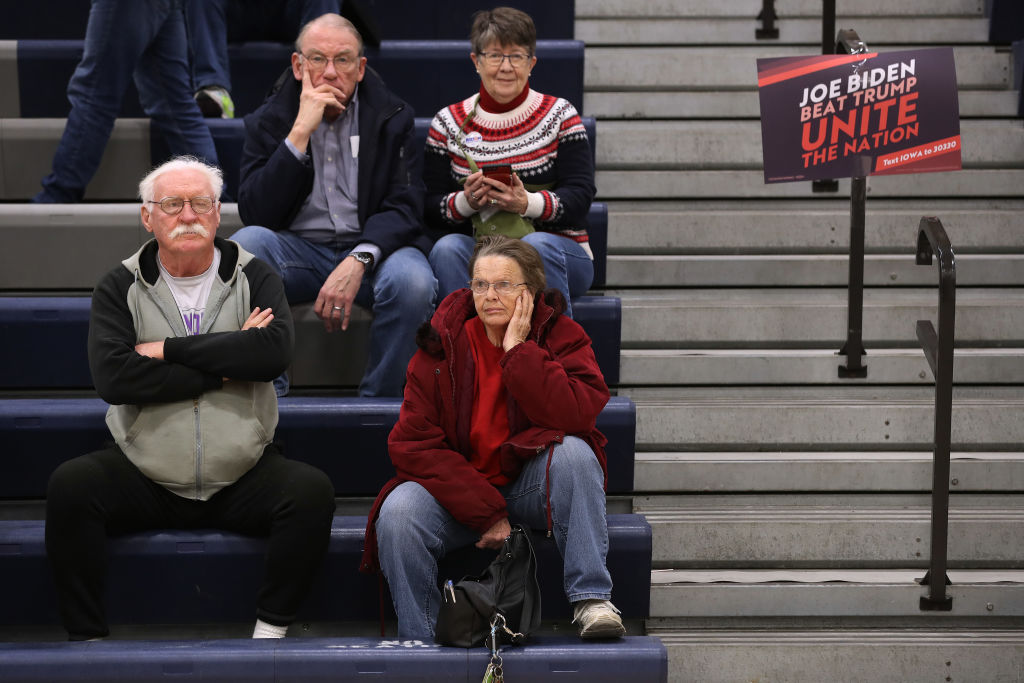On Monday night, as the Iowa Caucuses descended into a fustercluck of malfunctioning ballot-counting apps and incomplete results, Illinois Gov. J.B. Pritzker took the occasion to try and snatch away Iowa’s role as host of the season's first political contest.
If you’re looking for a state whose people represent the diversity of America, look no further than Illinois. It’s time for the most representative state in the country to be the first in the nation. https://t.co/2BeB4MQIcD
— JB Pritzker (@JBPritzker) February 4, 2020
It's true that Illinois is America’s most typical state, matching the nation’s demographics more closely than any other. Diversity is one of the Democrats’ core values. Iowa has been criticized as too homogenous, unrepresentative of the party’s base. According to a CNN graphic, only 3 percent of last night's caucusgoers were black, even though black voters make up more than a quarter of the Democratic base.
Because it so unduly amplifies the voices of an unrepresentative group, the Iowa Caucuses are “doomed,” Zachary Wolf wrote on CNN.
“I would get rid of the caucuses” in favor of primaries, Wolf quoted former Democratic National Committee chairman Terry McAuliffe as saying. “They’re undemocratic processes. People don’t have time to go spend the time like you heard today.”
There's a growing concensus that Iowa should no longer go first. But that doesn't mean Illinois should, either. Forcing the candidates to spend a year trying to win over Illinoisans would result in a different style of campaigning, and different results.
Illinois is bigger than Iowa, and the Chicago media market is more expensive than Des Moines or the Quad Cities. In Iowa, candidates emphasize retail politicking, meeting voters at small-town steak frys and corn roasts. To reach the voters in Illinois, candidates would have to spend more money on TV ads, and more time trying to win over ward committeemen and county chairmen who can bring out the vote in a low-turnout election. Forcing candidates to make deals with small-time ward heelers would give Illinois’s unsavory political culture an outsized influence on the presidential election.
Putting Illinois first would also give an advantage to candidates with money and political connections. The Iowa caucuses launched the campaigns of Jimmy Carter and Barack Obama, two political newcomers who won elections in which the voters wanted change. Obama used his community organizing skills to build a movement in Iowa, whose time-consuming caucuses reward candidates with a committed following. (He also took advantage of the fact that he was from a neighboring state. Obama spent a lot of time campaigning for the Senate in Rock Island County — which got him on Quad Cities TV.) Illinois has a history of choosing establishment candidates. If Obama had been from any other state, he probably would have lost our primary to Hillary Clinton.
One reason many consider Illinois a microcosm of the nation is that it contains a big northern city, a rural midland, and an Appalachian-style south. Many of the Downstate counties that flipped from Obama to Trump in 2016 are populated by white working-class voters the Democrats need to win back. Henry County, in western Illinois, went from 50% Obama to 57% Trump.
The problem: The party awards delegates to each congressional district based on its turnout in previous Democratic primaries. The 9th District, which covers Chicago and its northern suburbs, gets eight delegates. The 18th District, in Southern Illinois, gets four, even though both have the same population. If we hosted the first race, smart candidates will spend almost all their time in Chicago.
If Illinois does go first, it shouldn’t be the only state to go. In a Slate article on reforming the primary system, one of the suggestions is “Pick four states, one from each census region” — Northeast, Midwest, South, and West. (Another suggestion is “Let Illinois or Delaware do it,” but it acknowledges “the entire race would probably become a contest to see who could run up the score in Cook County.”) Doing multiple states out of the gate would require candidates to run a national campaign in a variety of places — just as they’ll have to do in the fall.
Yes, Illinois should play a more important role in choosing a presidential nominee than we do now. But should we vote first? No, because no state alone should ever vote first again.



